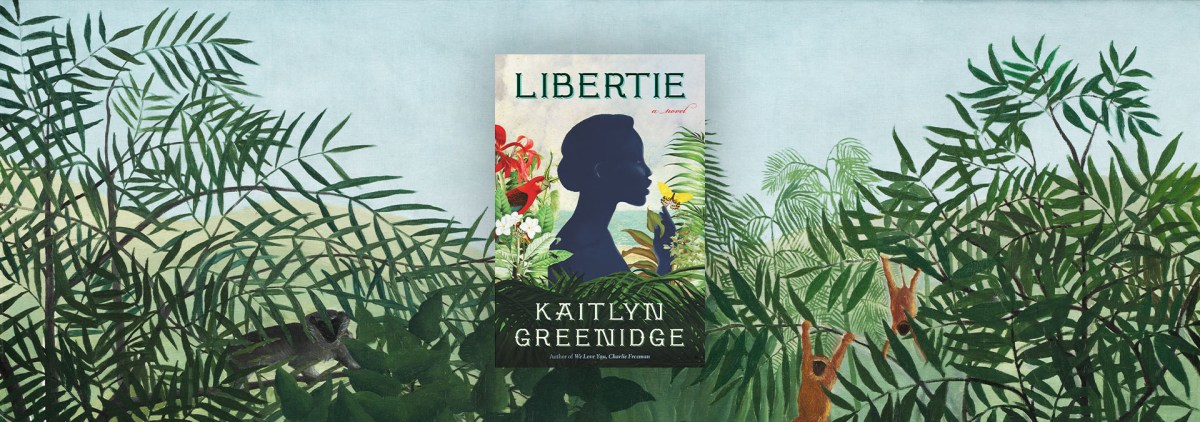[ad_1]
“I saw my mother raise a man from the dead,” Libertie Sampson tells us at the beginning of Kaitlyn Greenidge’s second novel. Libertie is a young girl living with her mother, a trained physician, in a community of free Blacks in Brooklyn, and the man is an escaped slave she calls Mr. Ben who has “stolen himself away” in a coffin as his means of getting North to freedom. In the novel’s first scene, Libertie watches her mother revive the unconscious Mr. Ben with an herbal remedy, awestruck by her mother’s healing powers.
Although Dr. Sampson is able to treat Mr. Ben’s physical ailments, healing the emotional wounds of slavery proves much more difficult. Mr. Ben attempts to settle into the community but struggles to connect with its members, and soon he is frequenting the back room of the local drinking establishment, pining for an enslaved woman named Daisy. When Mr. Ben’s life comes to a tragic end, the young Libertie is haunted by his example, realizing that simply attaining freedom isn’t enough; one has to know how to live freely.
Having no memories of her deceased father, Libertie tries to construct a version of him based on her mother’s remembrances. She imagines him residing in a kind of eternal lecture hall for the soul, living in an idealized state of freedom that is perhaps only possible in death:
In Freedom, he sat in the cool cave or in the wide field in a pew like we had at church, but comfortable, and he closed his eyes and listened to learned men and women make the world anew with words. And at his side were two seats: one for Mama at his left and one for me at his right. I imagined that when I died and made it to Freedom, whenever that would be, I would have to spend eternity very politely pretending to like these lectures as much as Mama and Father did. It would be hard to do that forever, but Mama would be happy, at least, and I would have my father’s hand in mine, while I sat, slightly bored but loved, in Freedom.
The aptly-titled Libertie is about our heroine coming to terms with how to live in freedom as a dark-skinned Black woman during Reconstruction. Libertie is inspired by the life of Susan Smith McKinney Steward, the first Black woman doctor in New York State and the third in the country, and her daughter, who married the son of an Episcopal bishop from Haiti. Libertie’s hometown is based on the real nineteenth-century community of Weeksville, a town of free Blacks in Brooklyn. The novel is a deftly realized work of historical fiction that in its exploration of race, gender, and colorism is also a vital text for our times.
The novel spins an enthralling narrative, beautifully rendered in rich prose with perceptively drawn characters. At its heart, Libertie is a mother-daughter story. Dr. Sampson, having accomplished so much for herself, has dreams of her daughter following in her footsteps and expects Libertie to become a physician. Libertie, meanwhile, doesn’t possess her mother’s ambition, yet yearns desperately for her approval. When Libertie is sent away to study medicine at a college in Ohio, she befriends a duo of women singers and neglects her studies.
Libertie’s relationship with her mother is further complicated by the fact that Dr. Sampson is light-skinned while Libertie has inherited her father’s dark complexion. Working beside her mother, Libertie comes to understand that, “Mama was light enough that the white women did not feel awkward when her hands touched them. Mama, to them, was not all the way black.” Libertie is further alienated by her mother’s decision to treat white women at her health clinic, a concession to financial necessity that the youthful Libertie feels is selling out.
After failing out of college, Libertie makes the rash decision to marry her mother’s protégé Lucien Chase, the son of an Episcopal bishop, and follow him to Haiti. She hopes that Haiti, as a Black-led republic, will offer her a different life than she can find in the U.S., but soon discovers that the island has its own problems and is still not free of the bitter disease of colorism.
As in her acclaimed debut, We Love You, Charlie Freeman, Greenidge shows herself to be psychologically astute, with an eye for nuance and a deep awareness of the ways that history influences the present. Greenidge has already been compared to Toni Morrison because of her subject matter and luscious prose, and Libertie lives up to that comparison. In Libertie, Greenidge gives us a flawed but highly relatable narrator whose journey readers will eagerly follow to the end.

FICTION
Libertie
By Kaitlyn Greenidge
Algonquin Books
Published March 30, 2021

[ad_2]
Source link
